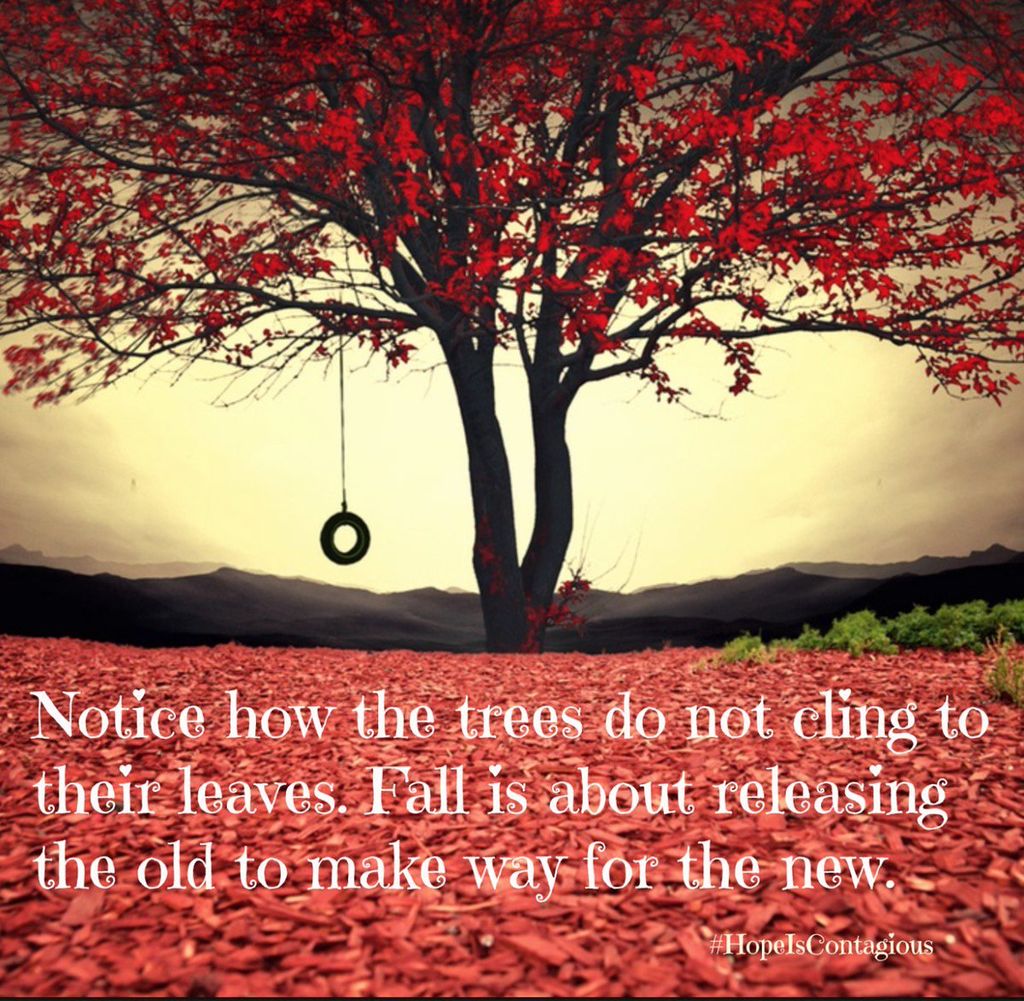As we look around at nature we can see that fall is quickly approaching. The trees are beginning to change color and lose their leaves. Trees do this leaf drop for survival. Winter is cold and dry so trees drop their leaves to protect themselves, retain water and to preserve energy.
I feel like this is something us humans tend to do in our way. During the colder months we stay inside more, eat warm foods and sleep more. We naturally preserve our energy and nourish ourselves with seasonal foods.
Perhaps we should go a step further. Maybe we need shed the things that are weighing us down so we can protect our emotional health. Once these heavy ‘leaves” are purged from our minds we will be able to function more efficiently and productively.
A heavy leaf that has been weighing me down is worry. For some reason when the season’s change I step into a worrying state of mind and I have a lot of anxiety. It sneaks up on me without any warning.. My conscious mind knows this excessive worrying is not healthy, but it still happens. I worry about things that do not even effect my life or family. Sometimes they are just downright silly! This worrying state of mind sneaks up on me without any warning.
Does this happen to you?
So how do we drop these leaves of worry?
First, remember you are not alone. Everyone worries at some time or another. It’s a matter of acknowledging it and letting it go. Just like the trees drop their leaves, you can drop your worrying.
Reach out to friends, family or me. We are each other’s best support system and together we can drop these leaves of worry. Let’s make room for healthy thoughts, a peaceful heart and a nourished soul.
Here are some tips on how to stop worrying. (From Good Housekeeping)
1. Ask yourself if the problem is solvable
If you are worrying about something practical rather than an imaginary ‘what if’, you can take practical steps to address the problem. The best antidote to anxiety is action.
2. Recognize thoughts are not facts
Chronic anxiety makes it hard to distinguish between the two so when the worry sets in try to consciously step back and challenge those thoughts. Take the frightening thought, write down the detail of what worries you and look at the evidence for and against it. Ask yourself; Is this thought true, or likely to happen? How could I think about this differently? What would I say to a friend in this situation? What would a friend say to me?
3. Write things down
Every time you feel anxious jot down how you feel, what you are thinking and what triggered it. The act of writing helps in several ways. Seeing it in black and white can provide perspective and helps you see things more realistically. And looking back at how certain situations or people affect you can reveal patterns that can help you get on top of your anxiety.
4. Postpone your anxiety
Telling yourself to stop worrying won’t work – it may make it worse. Instead accept that you are going to be anxious but decide to do it later, or tomorrow. Schedule in a ‘worry space’ when you will allow the anxiety to run free, but give yourself a time limit.
5. Do more of what works
Try to pinpoint times when you escape the anxiety and identify what enables you to do that – whether it’s talking to a friend, listening to the radio or going for a walk. When you notice anxious thoughts, schedule them for later and distract yourself.
6. Burn off the adrenalin with exercise
Stress and anxiety keep your body in a state of high alert – exercise helps to combat this by burning off adrenalin, relaxing muscles and triggering the release of endorphins.
7. Practice controlled breathing
Focusing on your breathing helps distract you from anxious thoughts and can short-circuit your body’s anxiety response by activating your calming parasympathetic nervous system. Sit somewhere quiet and comfortable. With your hands on your abdomen, breathe in slowly for a count of five, feeling your hands rise. Then breathe out as slowly as is comfortable, counting the breaths as your tummy flattens. Concentrate on breathing slowly in and out, counting or focusing on a word or phrase that helps you relax.
Namaste.



